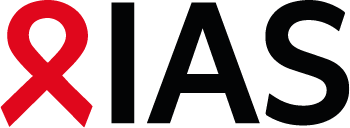Share Abstract
Improving early ANC attendance through community engagement and dialogue: project ACCLAIM in three African countries
Abstract Content:
Background: Timing of first antenatal clinic (ANC) attendance in sub-Saharan Africa averages 24-25 weeks; however, to effectively prevent HIV transmission to infants, earlier ANC attendance and initiation of antiretroviral therapy are necessary.
Advancing Community Level Action for Improving Maternal and Child Health (MCH)/Prevention of Mother-to-child HIV Transmission (PMTCT), known as ACCLAIM, a three-arm randomized trial in 45 clusters across Swaziland, Uganda and Zimbabwe, aims to improve access, uptake and retention in MCH/PMTCT services.
Methods: The study randomized clusters and evaluated three interventions: 1) Community Leader Engagement (participation in the Community Leaders Institute, mentoring to engage in community action); 2) Community Days and dialogues (community event with structured dialogues on MNCH/PMTCT, and provision of health services); and 3) Male and Female MCH Classes (set of four structured sessions led by peer facilitators).
This sub-study analyzed early ACCLAIM results on earlier access to ANC services. Baseline gestational age (GA) data at first ANC visit were collected from health facilities before implementation and quarterly after implementation. We compared proportions of women attending ANC during first half of pregnancy (≤20 weeks gestation) at baseline and 6-12 months after interventions.
Results: 277 trained community leaders held >7,000 community meetings and engaged >27,000 individuals in dialogues at Community Days, identifying and addressing barriers, misperceptions and harmful gender norms. The proportion of women attending ANC ≤20 weeks gestation across the three countries increased by 36% from baseline; this trend was significant across the quarters observed (p< 0.0001).
Attendance during the first trimester (≤12 weeks) also increased, from 11.7% (84/719) to 14.1% (102/721) in Swaziland (p=0.163), and from 3.4% (24/705) to 12.0% (97/809) (p< 0.0001) in Zimbabwe (Uganda data not available). Community dialogues actively focused on the benefits of early ANC and addressed norms of waiting until the woman “shows” before seeking ANC.
[Change in Gestational Age at First Antenatal Care]
Conclusions: In our study, community based interventions have resulted in significant greater than one-third increase in ANC ≤20 weeks gestation in three African countries. Ongoing data analysis will provide data on the full potential of open community dialogues by trained community leaders to change community norms and health-seeking behaviors such as early access to ANC and MCH/PMTCT services.
Advancing Community Level Action for Improving Maternal and Child Health (MCH)/Prevention of Mother-to-child HIV Transmission (PMTCT), known as ACCLAIM, a three-arm randomized trial in 45 clusters across Swaziland, Uganda and Zimbabwe, aims to improve access, uptake and retention in MCH/PMTCT services.
Methods: The study randomized clusters and evaluated three interventions: 1) Community Leader Engagement (participation in the Community Leaders Institute, mentoring to engage in community action); 2) Community Days and dialogues (community event with structured dialogues on MNCH/PMTCT, and provision of health services); and 3) Male and Female MCH Classes (set of four structured sessions led by peer facilitators).
This sub-study analyzed early ACCLAIM results on earlier access to ANC services. Baseline gestational age (GA) data at first ANC visit were collected from health facilities before implementation and quarterly after implementation. We compared proportions of women attending ANC during first half of pregnancy (≤20 weeks gestation) at baseline and 6-12 months after interventions.
Results: 277 trained community leaders held >7,000 community meetings and engaged >27,000 individuals in dialogues at Community Days, identifying and addressing barriers, misperceptions and harmful gender norms. The proportion of women attending ANC ≤20 weeks gestation across the three countries increased by 36% from baseline; this trend was significant across the quarters observed (p< 0.0001).
Attendance during the first trimester (≤12 weeks) also increased, from 11.7% (84/719) to 14.1% (102/721) in Swaziland (p=0.163), and from 3.4% (24/705) to 12.0% (97/809) (p< 0.0001) in Zimbabwe (Uganda data not available). Community dialogues actively focused on the benefits of early ANC and addressed norms of waiting until the woman “shows” before seeking ANC.
| Gestational age at first ANC | Baseline July-September 2013 (January-March 2014, Uganda) n= 5071 | 6-12 months of implementation October-December, 2014 n= 4799 | p-value |
| <=20 weeks | 1532 (30.2%) | 1975 (41.2%) | p < 0.0001 |
| 21+ weeks | 3539 (69.8%) | 2824 (58.8%) |
Conclusions: In our study, community based interventions have resulted in significant greater than one-third increase in ANC ≤20 weeks gestation in three African countries. Ongoing data analysis will provide data on the full potential of open community dialogues by trained community leaders to change community norms and health-seeking behaviors such as early access to ANC and MCH/PMTCT services.
